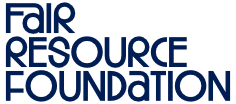
Policy Renewal
Although policy often seems like something abstract, it affects every citizen’s life. It determines everything from the speed limit on the highway, to the plastic forks at a take-out restaurant. The environmental policies we work on often come about under the influence of various parties. But who exactly is in charge? And how much regulatory power do they have? To answer these questions, Fair Resource Foundation is researching how policy is created. In doing so, our goal is clear: to establish transparent and democratic policy processes that incorporate the interests of a diverse group of stakeholders and thereby lead to ambitious environmental policies.
Transparency and inclusiveness central
How policies are created largely determines their outcome. To arrive at well-weighted policies, various interests, perspectives, values and goals must be taken into account. So it cannot be that the (financial) interests of a particular group are given greater weight than other interests. Here we use concepts such as inclusive governance, social justice, inclusive policymaking. We stand up for the interests of the environment while simultaneously recognizing that certain marginalized groups are often harder hit by environmental pollution and climate change. This is precisely why it is crucial that policies be created in an inclusive, transparent and democratic manner.
We are critical of how policies are created and urge policymakers to establish more transparent and inclusive policy processes. One of the ways we do that is with the project on systemic flaws in environmental policy. Here we look at systemic errors in policy design. Also, the project around Extended Producer Responsibility (EPR) takes a critical look at how policies are created. In this project, we focus specifically on the implications of the shifted governance structure within EPR.

environmental policy with an eye for justice
Fair Resource Foundation seeks environmental policies that recognize that environmental problems in many cases disproportionately affect certain groups, such as lower-income people, ethnic minorities, and communities in the Global South. To arrive at well-balanced policies, it is important to consider a variety of factors and interests. We still too often see financial interests, of large corporations for example, put before the public interest. This leads to unsustainable policies, with costs often passed on to society.
Fair Resource Foundation strives for a new form of policymaking, where decision structures are more transparent and inclusive, where the common good of society outweighs economic interests, and where justice goes beyond national boundaries.
Latest publications
On Policy Renewal
Policy Renewal
Want to know more about this project?
